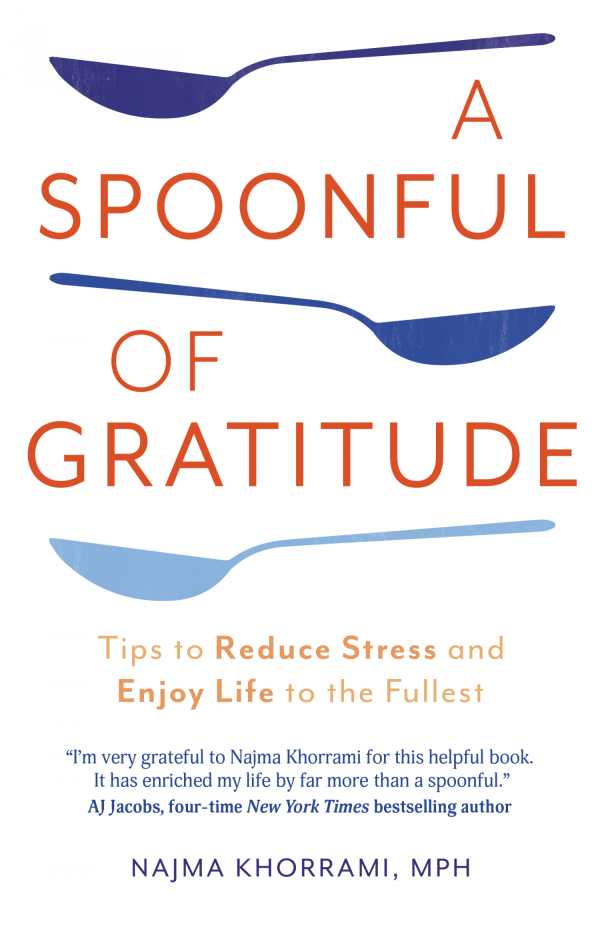A Spoonful of Gratitude
Tips to Reduce Stress and Enjoy Life to the Fullest
A Spoonful of Gratitude forwards tips for turning gratitude into a daily practice.
Najma Khorrami’s A Spoonful of Gratitude suggests methods for bettering one’s life through habitual changes.
Containing dozens of tips for developing a practice of self-care, this is a book that fosters intentionality. It suggests finding reasons to feel grateful, arguing that gratitude itself has the power to help people become more “motivated, inspired, or healed.” Psychological and sociological research is referenced to back up such claims.
Though it covers motivating topics like self-esteem, goal setting, and relationship building, the book’s central claims are often too familiar. It asserts that a positive attitude can influence a person’s life in unexpected ways, as with reducing stress: “is a strong strategy to help minimize stress in our lives, which is especially intense these days.” More than a dozen entries are used to explore such benefits. However, as the book continues, the depth with which it treats its topics diminishes. Indeed, in covering complex subjects like interpersonal relationships and career choices, the book’s discussion space is compressed. Its ideas become repetitive, seldom straying from broad claims about the positive effects of gratitude.
Still, the book’s tips are useful and contextualized for added appeal, dancing through subjects like coping during the holidays. There are positive, everyday suggestions, too, like writing thank you notes and making time for exercise. Even so, these tips are redundant in tone, and some are repeated entirely, as with encouragements to start a gratitude journal, or to note areas in which one feels good about themselves.
Bullet points, heading changes, and lists help to make the material accessible and consumable, even though most remain on the surface of their topics, as with entries naming “5 Reasons to Stay Hopeful, No Matter What” and “6 Ways to Better Understand (and Also Care for) Yourself.” Few are probing or fresh. Indeed, across the book’s seven sections, considerable time is devoted only to the generic organizing emotion; the internal vignettes have the flavor of blog posts, with introductions, advice, and summary paragraphs that suggest next steps. Though supportive, their prose is bland and sanitized. Some were previously published in venues including The Huffington Post and Psychology Today, and most follow the same basic pattern without deviation, dulling their collective appeal.
Comforting and light, the self-help book A Spoonful of Gratitude forwards tips for turning gratitude into a daily practice.
Reviewed by
Jeremiah Rood
Disclosure: This article is not an endorsement, but a review. The publisher of this book provided free copies of the book and paid a small fee to have their book reviewed by a professional reviewer. Foreword Reviews and Clarion Reviews make no guarantee that the publisher will receive a positive review. Foreword Magazine, Inc. is disclosing this in accordance with the Federal Trade Commission’s 16 CFR, Part 255.

